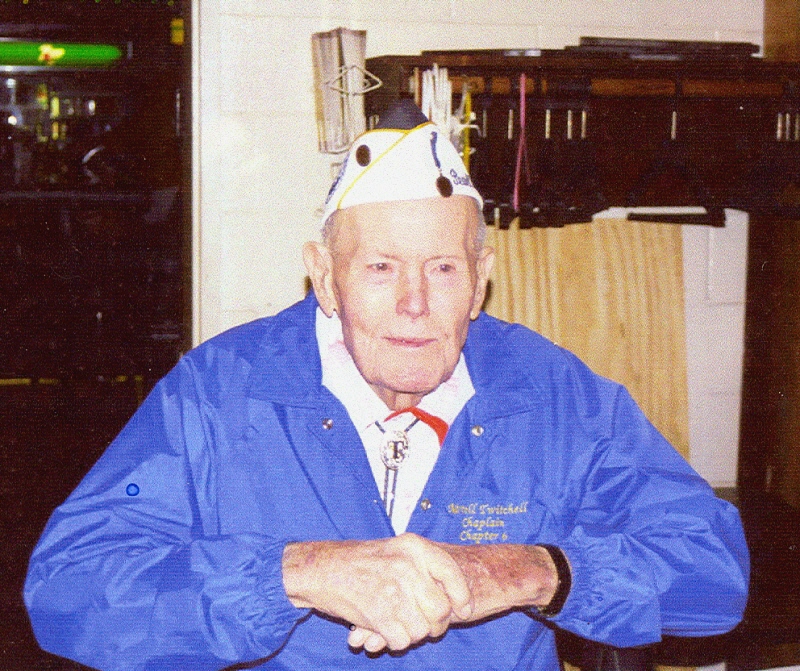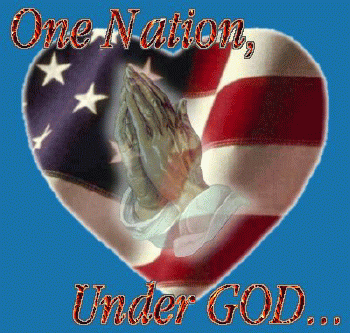

Chaplain Martell Twitchell
SUBMARINE BASE
I was born April 25,1907, in Kosciusko, Mississippi, and was pastor of the Methodist Church when the need for Navy Chaplains became so great, I reported for active duty assigned to the USS Portland in November, 1937. I was assigned to Pearl Harbor in 1940.
Saturday, December 6th, 1941 I attended a football game with Chaplain Thomas L. Kirkpatrick, Chaplain of the USS Arizona. The game was between the University of Idaho and the University of Hawaii. Chaplain Kirkpatrick came home with us to help celebrate my son’s third birthday. He sang "Happy Birthday" and assisted Martell Jr. in cutting the birthday cake. I invited him to spend the night but he declined, as he wanted to be ready to conduct his worship service on the deck the next morning without having to rush over to his ship. (Kirkpatrick’s body is still on the Arizona).
December 7th I was scheduled to conduct an 8:15 a.m. worship service at the Marine Barracks and a 10:00 a.m. service at the Submarine Base, my primary duty station and a third at 6:30 p.m. at the Naval Ammunition Depot operated by the Marines at Lualualei (which means "the beloved one spared").
I got into my car, picked up my organist, Ben Jones, a former member of the Pearl Harbor Marine Band and drove over towards the Marine Barracks. En route we stopped at a Japanese Flower Shop and purchased two beautiful poinsettias for the altar. We drove along Beretania Avenue, the highway through Honolulu, still not knowing about the attack. By this time the Highway Patrol was controlling traffic away from Pearl Harbor. I was in uniform and waved through. We were heading west from Honolulu near the territorial prison (Hawaii was not yet a State). We saw a strange plane circling over the Army Headquarters and another over John Rogers Civilian Airport but couldn’t see the rising sun emblem on their wings. Just as we saw the first two planes, there was heavy anti-aircraft fire over Hickam Field and Pearl Harbor. Jones said "we are really practicing today, aren’t we" but I said, "no we are under attack." We were directed through the main gate to the north base.
Since I had a service scheduled at the Marine Barracks, we stopped there. The commanding officer had set up his command post in the basement under the Marine Barracks and they were also loading anti-aircraft shells into machine gun ammunition belts. The automatic loader evidently wasn’t working because the belts were rusty. The Marines also had rifles and 3" anti-aircraft guns. A wave of dive-bombers came toward us diving in the Navy Shipyards. The battleship USS Pennsylvania with the destroyers Cassin and Downs were in the major dry dock. About 50 yards west the destroyer USS Shaw was in the floating dry dock. The Marine Barracks parade grounds were between the ships and us.
I could see the bombs plummeting from the planes towards the ships and exploding. I thought everything would be destroyed. Fortunately only three bombs hit the forward area of the Pennsylvania and the rest exploded on and around the two destroyers. Since the destroyers were undergoing overhaul and repairs the crew were living in barracks. The damage to the Pennsylvania was temporarily repaired and in a few days it departed for San Francisco.
The planes from the Japanese aircraft carriers bombed, torpedoed, damaged or sank most of the ships in Pearl Harbor and all the airfields on the island. There was no damage to the submarines and only a couple of fighter aircraft able to fly.
My car was parked near the barracks and a marine sergeant took it to relieve the gate watch. It came back covered with marines. They parked it in an exposed area and a truck backed into it crushing the trunk. When the all-clear signal was given I proceeded to my office at the submarine base and reported my presence to the commanding officer. The whole area was occupied with sailors who had been rescued from sunken ships and lost everything they owned.
My office was in a wing of the barracks building which included the base library, a large reading lounge and the base ship’s service store. The other wing served as the enlisted men’s barracks. There was a large welfare fund supported by profits from the ship’s service store. The commanding officer gave me over $5,000 to give to the enlisted men so they could purchase personal items. The supply depot issued them dry clothing.
We were immediately ordered to blackout all the windows by painting them with black paint. I instructed my yeomen to obtain black paint and brushes and use sailors to paint all the areas needed to be blacked out.
Our sick bays were filled with injured men from the ships and I ministered to them as much as possible. No one knew if the enemy was returning or not. The commanding officer directed me to go out to the naval housing and visit all of the submarine personnel families and instruct them to report downtown to the Army-Navy YMCA where they would be assigned places to stay in the homes of families on the east side of Honolulu. I went out and knocked on doors for about an hour. My orders were changed because at that point they didn’t think the Japanese would return and I was instructed to notify the families to stay in their homes until further notice.
A number of families had been assigned homes in Honolulu and decided to remain there for a few days, The wives and children that received the best treatment were those put up in a row of apartments along the west side of canal street. Afterwards it turned out those women who were such excellent hostesses were the ladies of the night.
I called my wife late that afternoon to tell her I was all right but I wouldn’t be coming home as I had to stay at my battle station which was a 50 bed dispensary now filled with wounded sailors. I stayed there and visited with the men, prayed with them and did everything I could to assist. Thousands more beds were set up in a field hospital on the football field to take the enormous overflow from the Navy Hospital.
Monday afternoon December 8th, I arranged for some entertainment to take place at the 20-foot concrete alcove area next to the swimming pool. I brought in Hilo Hattie and her hula troupe to perform for the men. The whole city was blacked out for several weeks and there was no transportation out by ship or air for two weeks. The football team from the University of Idaho was stranded there and put to work as traffic cops, day and night.
Wednesday, December 10th I had lunch with my wife and our 5-year-old daughter Vivian. My wife was not doing well and at first, I thought it was due to lack of sleep. We lived in a concrete Spanish style house with a large number of windows and my wife, Mamie, had been unable to get them blacked out. She had been taking the children under a blanket in the middle of the room at night with a radio and flashlight. She wasn’t sleeping much at all.
On Friday December 12th, the Army nurse called me to say your wife is ill. I took her to the Navy dispensary and they said she should be hospitalized. I didn’t agree so I took her home that night to let her get some sleep. She slept about one hour then woke up talking loudly and asking a series of non-sensible questions. I could readily see it was a situation I couldn’t handle. She had a nervous breakdown and they gave her shock treatment and Metrazol to restore her sanity.
Orders were given for families to evacuate to the mainland as soon as possible. I contacted Navy Supply to ship our household effects to the mainland. But I knew Mamie still needed her shots. I told the doctor "I’m a coward" and I won’t leave her until she’s well. So the district chaplain’s wife took our children and put them in a temporary foster home. The first morning I saw Mamie in the dispensary she was reading a movie magazine pointing to a movie star saying "see me, don’t you think I’m pretty?" My commanding officer had sent a message to the chief of Navy Chaplains to brief him about Mamie's condition. We decided to wait until January 23 to leave Hawaii.
I did my first regular worship service December 21st, two weeks after the attack. Normally the chaplains are responsible for the children’s Christmas party. Most of the children had returned to the mainland; only 35 were left. I made arrangements with the Army/Navy store downtown so the party could still happen. I managed to get a Douglas Fir and had it all decked out. I also had a Christmas movie and refreshments. I played the part of Santa Claus and when I went to change I told my five year old daughter, Vivian, "daddy will be right back." When she approached Santa, she said, "My daddy has disappeared! What must we do?" Santa assured her he would be right back and I was.
I had to get my furniture crated and shipped to the mainland and was not to be assigned to sea duty until Mamie could take care of the children. I was given one-month leave to go home to Mississippi and then received orders to report to the Naval Air Station, Pensacola Florida. I found a colonial home for $85/month. I spent three months in Pensacola and then was assigned to the Navy Pre-Flight School in Athens, Georgia, where I would work with the cadets in training. We rented a brick house with pinewood and furnished it with beds from the school. Mamie wasn’t back to normal for a year so we had a large black woman we called "Aunt Babe" look after the children and do the cooking. It was hard to uncrate the furniture sent from Pensacola. There was so much wood in the crates that we used it to build a chicken house. I also did services at the University of Georgia, an all women’s school and 1/3 of the students were Catholic. The University’s music teacher also served as our organist and choir director for our 34-voice cadet choir.
After Mamie recovered I was assigned to the USS New Mexico in the Pacific Theater during the rest of the war. My rank increased from Lieutenant junior grade to Lieutenant, Lieutenant Commander, and then Commander and finally to Captain in 1953. I retired from the Navy in 1960.
"Remember Pearl Harbor" is a slogan, which should be instilled in the hearts of every loyal American. The spirit of calmness, bravery, courage, sacrifice, cooperation and heroism was evident in each task and duty performed. If every American today compares the spirit of the wounded Sailor who requested the Navy physician to minister first to his wounded buddy there will be no question whatever concerning our ultimate victory. (Chaplain Martell Twitchell, Captain USN Ret.)
